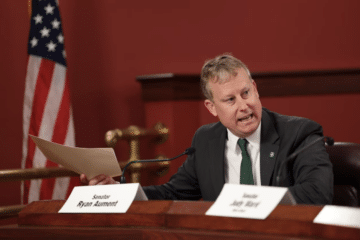Washington, DC – Vicki Phillips, CEO of the National Center on Education and the Economy, released the following statement regarding the latest results from the Programme for International Student Assessment (PISA) by the Organisation for Economic Co-operation and Development (OECD):
“In a uniquely challenging moment during an unprecedented global pandemic, student achievement in many countries saw declines–the U.S. included with respect to mathematics performance. At the same time, reading and science in the U.S. held comparatively stable despite prolonged school closures in many states and districts. The data suggest that the causes and dynamics that drove student outcomes prior to the pandemic closures may matter more for student learning than the closures themselves.
These results provide important lessons for policymakers and practitioners alike as we seek to create learning environments that will empower students to thrive in a changing future.

Countries like Japan and Singapore, top performing systems that improved across all domains tested, show it is possible to advance learning even during a global pandemic. Countries like Canada, Ireland, and more show it is possible to achieve high performance with high levels of equity across socioeconomic groups. We also see that many systems were able to maintain performance by leaning into teacher and parent support and removing barriers to quality remote learning and digital technologies.
As always, these results warrant our sustained focus and ongoing analysis. With them, we can begin to see how systems are improving today, what policy decisions are driving progress for tomorrow, and what our students and schools need to see greater gains in the future.”
Beginning in January, NCEE will host a series of PISA-focused webinars that will dive deeper into key trends and lessons to be learned from this round of the international assessment. Reporters interested in talking with NCEE leadership may contact Brendan Williams-Kief at 202-905-6284 or bwk@georgetownpa.com.




